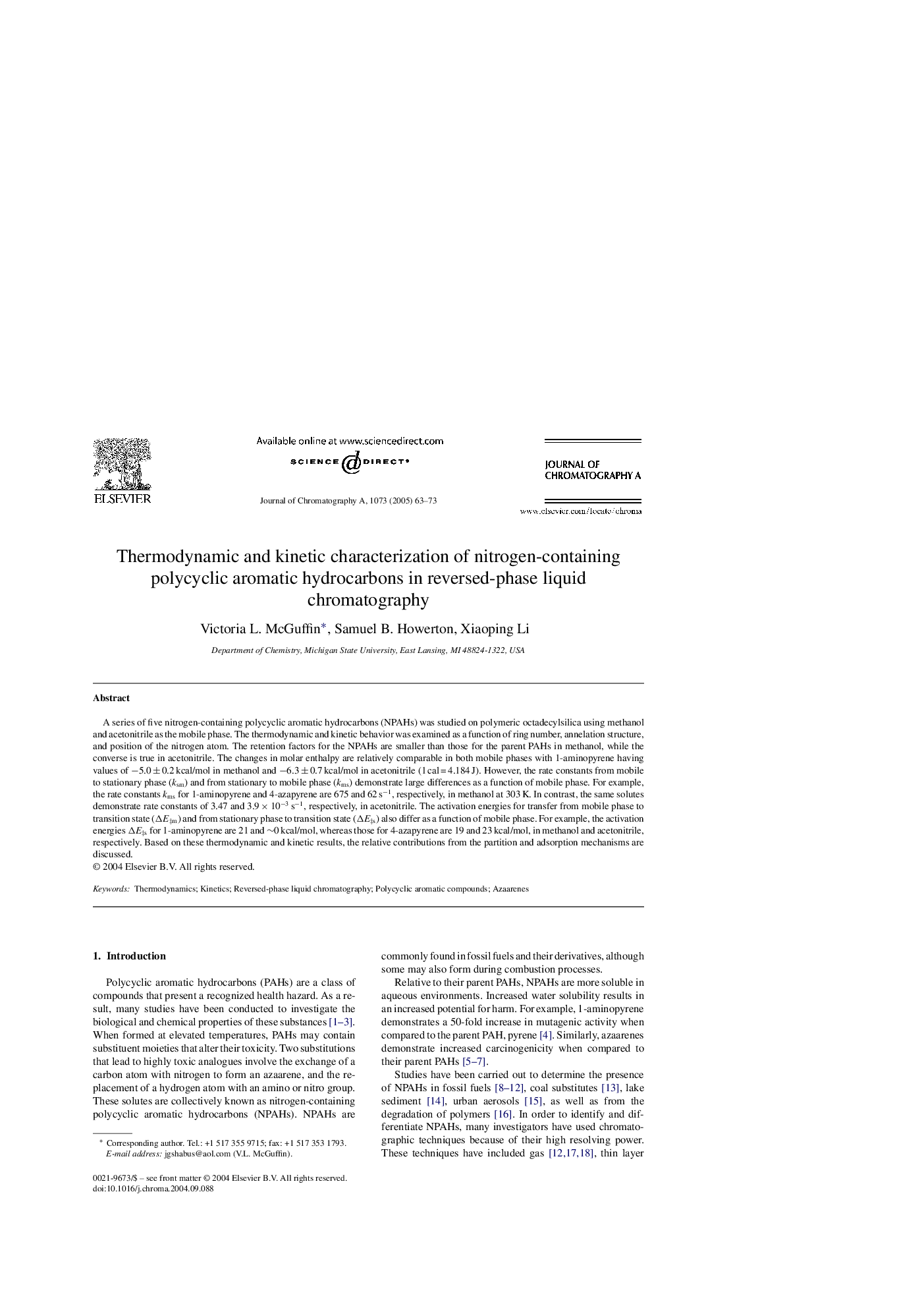| Article ID | Journal | Published Year | Pages | File Type |
|---|---|---|---|---|
| 9749125 | Journal of Chromatography A | 2005 | 11 Pages |
Abstract
A series of five nitrogen-containing polycyclic aromatic hydrocarbons (NPAHs) was studied on polymeric octadecylsilica using methanol and acetonitrile as the mobile phase. The thermodynamic and kinetic behavior was examined as a function of ring number, annelation structure, and position of the nitrogen atom. The retention factors for the NPAHs are smaller than those for the parent PAHs in methanol, while the converse is true in acetonitrile. The changes in molar enthalpy are relatively comparable in both mobile phases with 1-aminopyrene having values of â5.0 ± 0.2 kcal/mol in methanol and â6.3 ± 0.7 kcal/mol in acetonitrile (1 cal = 4.184 J). However, the rate constants from mobile to stationary phase (ksm) and from stationary to mobile phase (kms) demonstrate large differences as a function of mobile phase. For example, the rate constants kms for 1-aminopyrene and 4-azapyrene are 675 and 62 sâ1, respectively, in methanol at 303 K. In contrast, the same solutes demonstrate rate constants of 3.47 and 3.9 Ã 10â3 sâ1, respectively, in acetonitrile. The activation energies for transfer from mobile phase to transition state (ÎEâ¡m) and from stationary phase to transition state (ÎEâ¡s) also differ as a function of mobile phase. For example, the activation energies ÎEâ¡s for 1-aminopyrene are 21 and â¼0 kcal/mol, whereas those for 4-azapyrene are 19 and 23 kcal/mol, in methanol and acetonitrile, respectively. Based on these thermodynamic and kinetic results, the relative contributions from the partition and adsorption mechanisms are discussed.
Keywords
Related Topics
Physical Sciences and Engineering
Chemistry
Analytical Chemistry
Authors
Victoria L. McGuffin, Samuel B. Howerton, Xiaoping Li,
